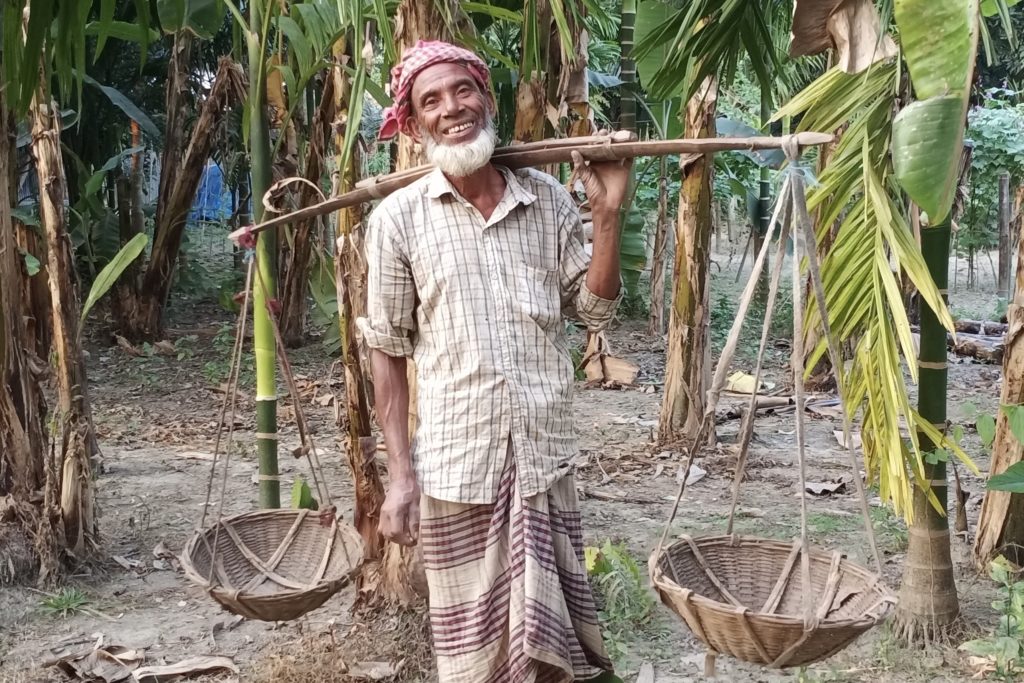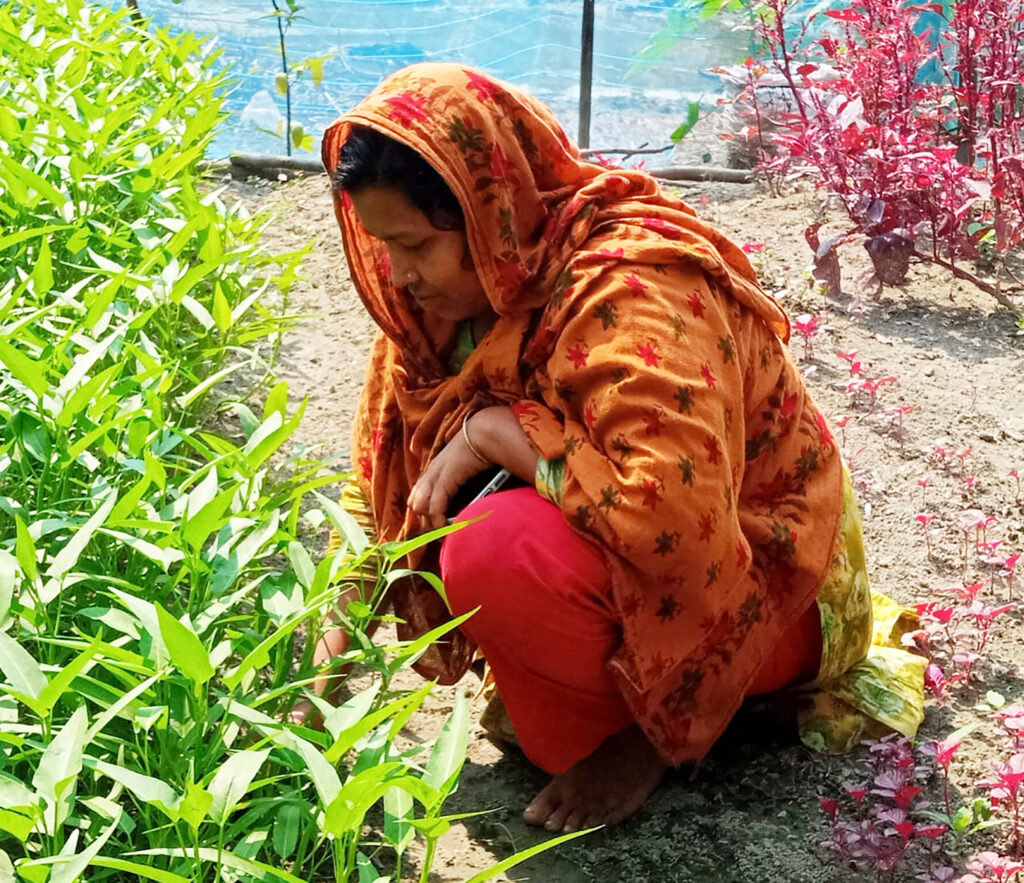 Bangladesh Dewanganj
Bangladesh Dewanganj
$30,361 needed of $80,000

Implementing Organization
World Renew
Program Summary
This nutrition-focused food security program is designed to build the capacity of farmers and their families under the leadership of a People’s Institution named “Rangdhanu Society”. This People’s Institution was formed a few years ago under the Integrated Community Development Program that was funded by World Renew and implemented by local partner PARI.
This program helps participants to identify their strengths, weaknesses, opportunities and challenges and prepares them to practice sustainable agriculture methods to ensure food security throughout the year. The program is forming Agriculture Forums under the leadership of the People’s Institution, and building their capacities to network with the agriculture and livestock offices of the local government. This allows the Agriculture Forums to have access to available resources such as training and technical support and to build a functional relationship with the local government.
Through training and workshops, the program is equiping the Agriculture Forums with agriculture techniques such as pile composting, worm composting, and the preparation of herbal pesticides to minimize the use of chemical substances, leading to increases in production and income.
This program also prioritizes the inclusion of vulnerable groups through the People’s Institutions and Agriculture Forums, including women, single mothers and people with disabilities, so that they can also have access to the agricultural activities promoted by the program, including production, marketing and decision making at family and community level. It is changing their roles from being dependent to becoming active participants in ensuring food security.
After the COVID-19 pandemic, local inhabitants are still facing challenges in maintaining a healthy life style, due to the shortage of nutritious foods and the lack of job opportunities. This program is working to build the resilience of the target communities by changing the existing social system and transforming their lives. The program aims to equip communities to regain their strength and ability to cope with crisis by reducing the gaps created by COVID-19.
The program is being implemented in three unions; Chukaibari, Chinaduli and Dewanganj under Dewanganj Upazila in Jamalpur District of Bangladesh.
Success Stories

So Much to Learn from Farmers Groups
Participants in village farmers groups love attending meetings, which are an opportunity to socialize as well as learn new ways to meet their families’ nutritional and economic needs. Rajia and Momena belong to two different groups in two towns far apart, but each was thrilled to talk about how life has changed for them as members of groups.
Rajia lives in a village of families who had to relocate from their previous residences because river erosion had made the land unlivable. Even in her old home she’d never been very successful in growing vegetables in her small kitchen garden using traditional techniques. Her production costs were high, and though she had some inkling about making and using compost she couldn’t seem to make it work for her. She’d lost interest in gardening by the time she moved.
Luckily, local partner Participatory Action for Rural Innovation (PARI) was working in the new village and invited her to join. Before long, her knowledge had greatly increased after workshops on agriculture, composting, caring for the environment, food security, organic farming, and nutrition. She became a model farmer. Her garden began to fill with fresh vegetables like red amaranth, spinach, okra, eggplant, gourds and beans. Not only is her family enjoying the nutritional variety and the great taste of organic vegetables, her production costs have decreased and she’s earning money selling her surplus at market. She plans on enlarging her operations now that she’s had a taste of success.
Momena, after joining her own farmer group, has had similar experiences in her journey of improvement. Once she learned that she could save money on seeds by saving them from the high-quality vegetables she grows, she was keen on learning best practices of local seed production and preservation. With training by PARI and a government agriculture officer, she knows how to identify good seeds and how to dry them for future planting. It makes her happy to know that she is contributing to her family’s well-being and helping her husband sustain the household through this initiative of hers. Says Momenta, “It’s a pleasure to grow vegetables for our table and for sale. Saving money by saving seeds is easy, and I’m glad to know the right way to do it. I’m looking forward to planting my very own seeds next cycle!”
Bangladesh Dewanganj Program
Led by World Renew and Local Partner Participatory Action for Rural Innovation (PARI)
